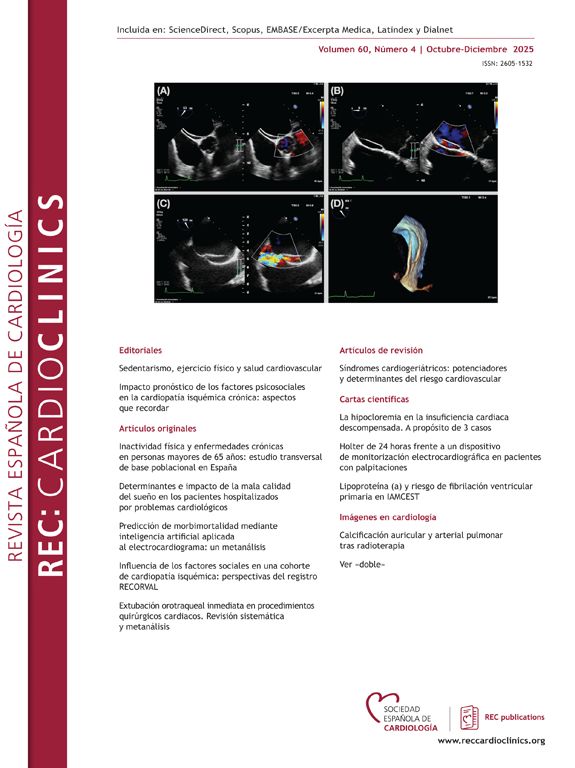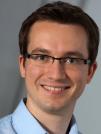My name is Andreas Seitz, I am a 5th year resident and clinical scientist at the Robert Bosch Hospital in Stuttgart, Germany. During the last few years, my clinical focus has been mainly on non-invasive cardiac imaging, in particular cardiac magnetic resonance tomography and computed tomography. My primary research interest is the diagnostic assessment and optimal treatment of patients with angina despite unobstructed coronary arteries (e.g. coronary microvascular dysfunction, coronary artery spasm).
question: How did you get into medicine and cardiology?
answer: I remember that I already had a strong interest in biosciences in general during high school. Moreover, when I was a teenager my cousin, who was in medical school back then, kept telling me interesting stories about his studies, and later about his work at the hospital. In 10th grade, we were supposed to do an orientation internship, which I of course did with my cousin, who in the meantime had become a trauma surgeon. After this internship I was sure that I wanted to go into medicine as well. My interest in cardiology was cemented at the end of my studies while doing basic research in cardiology for my medical thesis.
q: Who are the doctors who influenced you the most?
a: Besides my cousin, who first piqued my interest in medicine, there are two more doctors who influenced me in particular during the first years of my career. The first of them was my doctoral thesis supervisor Professor Patrick Most, who got me enthusiastic about cardiology research, and the second was my former chief Professor Udo Sechtem, who taught me to listen and look closely at the patient and that physicians should never stop reading and questioning.
q: What innovation do you think has had most impact in cardiology or in your area of interest?
a: No doubt, there have been several innovations that have had a tremendous impact in the field of cardiology in the past, i.e. coronary catheterization and the development of percutaneous coronary and valvular intervention techniques (e.g. TAVR). Besides these past innovations, I believe that currently the advent of cardiac computed tomography together with future artificial intelligence will have an important impact in our daily clinical practice in cardiology.
q: What do you consider your most important achievement to date?
a: This is a tough question considering the early stage of my career. Fortunately, I had the chance to gain a profound knowledge in non-invasive cardiac imaging during the first years of my clinical work. In this context, I was able to obtain the level 3 certification in cardiovascular magnetic resonance offered by the European Association of Cardiovascular Imaging. With regard to the scientific part of my work, I am grateful to work with an inspiring group of colleagues and we were able to publish some interesting research papers focusing on coronary vasomotor disorders during the last few years. I hope that our continuous effort in this field will eventually lead to a better understanding and treatment of these patients.
q: Do you have any professional project in mind that you would like to develop in the coming years?
a: Yes indeed, I have both scientific as well as clinical projects in mind that I would like to develop in the coming years. With respect to my clinical career, I am currently aiming for an interventional fellowship. Scientifically, building on the previous works of our research group, we are planning a randomized clinical trial for the treatment of patients with angina pectoris caused by coronary artery spasm and microvascular dysfunction.
q: What would you highlight about specialized medical training in your country?
a: As far as I can compare, specialized medical training in Germany is somewhat different from other countries. Most importantly, there is no central matching process, but medical school graduates can apply directly to a specific residency program. Residency itself is very practically oriented and usually comprises 5 years of training in general internal medicine followed by a 3 year cardiology fellowship. In recent years, a “fast-track” residency has been increasingly offered, which comprises 3 years of general internal medicine followed by 3 years of training in cardiology.
q: Tell us about ‘that’ clinical case that you will never forget.
a: Due to my research interest, I am involved in our outpatient clinic for patients with coronary vasomotor disorders, where I regularly see desperate patients with angina despite unobstructed coronary arteries. Unfortunately, these patients are often not taken seriously by other physicians who either do not know about or neglect the existence of coronary vasomotor disorders. I especially remember some patients with Prinzmetal angina and a history of multiple invasive angiographies due to acute coronary syndromes with stenting of rather non-significant lesions, which of course did not improve their actual problem. A single invasive physiological assessment and subsequent initiation of anti-vasospastic medical treatment was sufficient to control their symptoms.
q: What advice would you give to someone who has not yet opted for cardiology?
a: The great thing about cardiology is the broad variety of subspecialization. Cardiologists have the chance to work non-invasively, invasively or do a combination of both. Hence, don’t hesitate to opt for cardiology if you are interested, you will find your niche.
q: How do you disconnect outside work?
a: I enjoy spending time with my family and friends, which helps to disconnect from work and to recharge the batteries in busy times.











